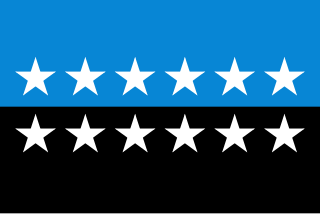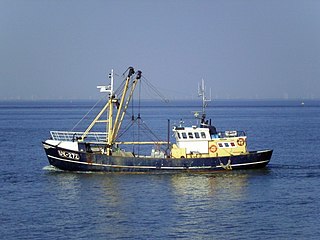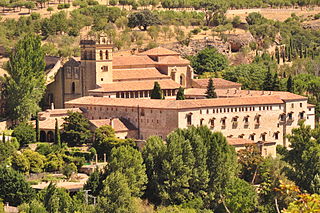
The European Coal and Steel Community (ECSC) was an organisation of six European countries created after World War II to regulate their industrial production under a centralised authority. It was formally established in 1951 by the Treaty of Paris, signed by Belgium, France, Italy, Luxembourg, the Netherlands, and West Germany. The ECSC was the first international organisation to be based on the principles of supranationalism, and started the process of formal integration which ultimately led to the European Union.

The European Economic Community (EEC) was a regional organisation which aimed to bring about economic integration among its member states. It was created by the Treaty of Rome of 1957. Upon the formation of the European Union (EU) in 1993, the EEC was incorporated and renamed as the European Community (EC). In 2009 the EC's institutions were absorbed into the EU's wider framework and the community ceased to exist.

The President of the European Commission is the head of the European Commission, the executive branch of the European Union. The President of the Commission leads a cabinet of Commissioners, referred to as the college, collectively accountable to the European Parliament. The President is empowered to allocate portfolios amongst, reshuffle or dismiss Commissioners as necessary. The college directs the Commission's civil service, sets the policy agenda and determines the legislative proposals it produces.

The Treaty of Nice was signed by European leaders on 26 February 2001 and came into force on 1 February 2003.

The Treaty on the Functioning of the European Union is one of two treaties forming the constitutional basis of the European Union (EU), the other being the Treaty on European Union.

The Atlantic 10 Conference (A-10) is a collegiate athletic conference whose schools compete in the National Collegiate Athletic Association's (NCAA) Division I. The A-10's member schools are located in states mostly on the United States Eastern Seaboard, as well as some in the Midwest – Massachusetts, New York, North Carolina, Pennsylvania, Rhode Island, Virginia, Ohio, and Missouri as well as in the District of Columbia. Although some of its members are state-funded, half of its membership is made up of private, Catholic institutions. Despite the name, there are 14 full-time members, and two affiliate members that participate in women's field hockey only.

A kibbutz is a collective community in Israel that was traditionally based on agriculture. The first kibbutz, established in 1909, was Degania. Today, farming has been partly supplanted by other economic branches, including industrial plants and high-tech enterprises. Kibbutzim began as utopian communities, a combination of socialism and Zionism. In recent decades, some kibbutzim have been privatized and changes have been made in the communal lifestyle. A member of a kibbutz is called a kibbutznik.

Brook Farm, also called the Brook Farm Institute of Agriculture and Education or the Brook Farm Association for Industry and Education, was a utopian experiment in communal living in the United States in the 1840s. It was founded by former Unitarian minister George Ripley and his wife Sophia Ripley at the Ellis Farm in West Roxbury, Massachusetts in 1841 and was inspired in part by the ideals of Transcendentalism, a religious and cultural philosophy based in New England. Founded as a joint stock company, it promised its participants a portion of the profits from the farm in exchange for performing an equal share of the work. Brook Farmers believed that by sharing the workload, ample time would be available for leisure activities and intellectual pursuits.

In Belgium, the French Community refers to one of the three constituent constitutional linguistic communities. Since 2011, the French Community has used the name Wallonia-Brussels Federation, which is controversial because its name in the Belgian constitution has not changed and because it is seen as a political statement. The name "French Community" refers to Francophone Belgians, and not to French people residing in Belgium. As such, the French Community of Belgium is sometimes rendered in English as "the French-speaking Community of Belgium" for clarity.

The United Kingdom European Communities membership referendum, also known variously as the Referendum on the European Community , the Common Market referendum and EEC membership referendum, took place under the provisions of the Referendum Act 1975 on 5 June 1975 in the United Kingdom to gauge support for the country's continued membership of the European Communities (EC) — often known at the time as the ‘European Community’ and the ’Common Market’ — which it had entered two and a half years earlier on 1 January 1973 under the Conservative government of Edward Heath. Labour's manifesto for the October 1974 general election had promised that the people would decide ’through the ballot box’ whether to remain in the EC.

R v Secretary of State for Transport was a judicial review case taken against the United Kingdom government by a company of Spanish fishermen who claimed that the United Kingdom had breached European Union law by requiring ships to have a majority of British owners if they were to be registered in the UK. The case produced a number of significant judgments on British constitutional law, and was the first time that courts held that they had power to restrain the application of an Act of Parliament pending trial and ultimately to disapply that Act when it was found to be contrary to EU law.
Rooster Teeth Productions, LLC is an American media and entertainment company headquartered in Austin, Texas and owned by Ellation, a division of Otter Media, which itself is a subsidiary of AT&T's WarnerMedia under its Warner Bros. unit. Rooster Teeth was founded by Burnie Burns, Matt Hullum, Geoff Ramsey, Jason Saldaña, Gus Sorola, and Joel Heyman in 2003. Rooster Teeth began with the production of Red vs. Blue, which premiered in April 2003 and is still in production, making it the longest running web series of all time. Due to server and web hosting costs, the founders created "Sponsorships" which is now known as "FIRST", a subscription to exclusive and earlier access to content and discounts on their merchandise store, among other benefits. The company later branched out into live-action shorts, series, comedy, Let's Play videos, and full animated productions. Other projects include reality shows, video game development, entertainment news programs, and podcasts. In 2015, Rooster Teeth released its feature-film debut Lazer Team, a science-fiction action comedy. The company hosts an annual convention, RTX, in several cities around the world.

KOCE-TV, virtual channel 50, is the primary Public Broadcasting Service (PBS) member television station serving Los Angeles, California, United States that is licensed to Huntington Beach. Owned by the Public Media Group of Southern California, it is sister to Los Angeles-licensed educational independent station KCET. KOCE-TV's studios are located at the South Coast Corporate Center in Costa Mesa, and its transmitter is located atop Mount Harvard. Since 2011, the station has been branded as PBS SoCal.

The Crips are a gang based in the coastal regions of southern California. They were founded in Los Angeles, California in 1969 mainly by Raymond Washington and Stanley Williams. Once a single alliance between two autonomous gangs, they are now a loosely connected network of individual "sets", often engaged in open warfare with one another. Its members traditionally wear blue clothing, a practice that has waned somewhat due to police crackdowns specifically targeting gang members. Historically, members have been primarily of African-American heritage.

The Inner Six, or simply "the Six", were the six founding member states of the European Communities. They were in contrast to the outer seven who formed the European Free Trade Association rather than engage in supranational European integration. Five of the Outer Seven later joined the European Communities.

The Commando System was a mostly voluntary, part-time force of the South African Army, but in their role as local militia the units were often deployed in support of and under the authority of the South African Police.

The Treaty of Lisbon is an international agreement that amends the two treaties which form the constitutional basis of the European Union (EU). The Treaty of Lisbon was signed by the EU member states on 13 December 2007, and entered into force on 1 December 2009. It amends the Maastricht Treaty (1993), known in updated form as the Treaty on European Union (2007) or TEU, and the Treaty of Rome (1957), known in updated form as the Treaty on the Functioning of the European Union (2007) or TFEU. It also amends the attached treaty protocols as well as the Treaty establishing the European Atomic Energy Community (EURATOM).
The Momin Ansari or Ansari, are a Muslim community, found mainly in West and North India, and the province of Sindh in Pakistan. A small number of Ansaris are also found in the Terai region of Nepal. In North India, the community are known as Ansari or shiekh, while in Maharashtra the community is known as Momin. The name or title of Ansari ("supporters") originated in Arabia at the time of the prophet Mohammed.

This is a glossary of terms used within the Catholic Church.

Coleocentrus excitator is a parasitoid wasp in the family Ichneumonidae that parasitizes the long-horned beetle species Ergates faber.

















